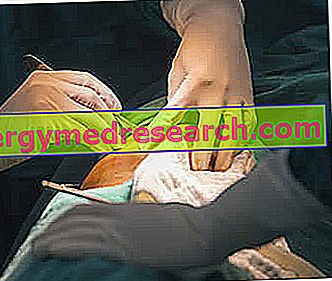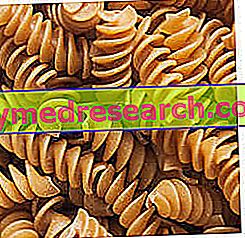Flatulence is a phenomenon as unpleasant as it is embarrassing, which manifests itself in an abnormal accumulation of gas at the gastro-intestinal level. Released under pressure through the anal sphincter, the mixture of intestinal gas produces a characteristic noise due to the passage of air through the anal fissure, while the gaseous mixture that characterizes it is responsible for the bad smell perceived by the subject and by those who unfortunately are close to him.
Flatulence is often the immediate consequence of poor nutrition, both in terms of food combinations and food choices. Often, flatulence is caused by taking drugs and, less often, it reflects pathologies such as lactose / fructose intolerance, irritable bowel syndrome, gastritis, and colitis or celiac disease.
Flatulence can be accentuated in the presence of stress, depression, nervous tension and dysbiosis (alteration of the bacterial flora). In addition to the excessive synthesis of gas at the gastrointestinal level, flatulence is normally accompanied by a swollen belly (meteorism), belching and stomach ache.
What to do
- Chew slowly, avoiding incorporating air, the worst enemy of flatulence
- In the case of lactose intolerance, the only effective remedy to avoid flatulence is to remove all foods containing lactose from the diet
- Don't talk with your mouth full
- In the case of gluten intolerance (celiac disease), following a gluten-free diet is the only food remedy to reduce the symptoms derived from the pathological condition (including flatulence)
- Practice constant physical exercise: sport is a particularly effective remedy both for mood and for alleviating flatulence
- Maintain a moderate intake of fiber and a good level of hydration (drink at least 2 liters of water per day)
- Reduce stress. Although discounted, decreasing daily tensions is an excellent remedy to relieve flatulence due to excessive stress. Let us remember briefly that stress and tension can also promote or encourage flatulence
- Wearing cotton underwear rather than undergarments made of synthetic fibers is a fairly good remedy to avoid enhancing the odor derived from a possible foul-smelling intestinal gas emission. Deodorants and intimate perfumes can somehow mitigate odors. It is recommended, however, not to abuse, to avoid irritating the genital area, which is already delicate in itself
What NOT to do
- Follow an unbalanced diet, characterized by excesses, fat-rich foods and "junk" foods
- Abuse of heteropolysaccharide-based laxatives (fibers): these products (including herbal products) swell at the gastro-intestinal level, favoring flatulence and a swollen belly. For the same reason, it is recommended to contain the intake of foods rich in fiber
- Lie down immediately after a meal
- sedentary
- Smoking during meals
- Chewing gum or sucking too much candy can promote abdominal bloating and flatulence
- Consume fried foods regularly
- Eat large meals greedily and voraciously
- Wear synthetic clothes
- Consume the meal standing up and fast
- Drink regularly with a straw
What to eat
- Most of the time, food remedies are extremely useful for correcting, reducing and preventing flatulence. In fact, in most cases, flatulence depends more on incorrect eating habits than on relevant pathologies. For this purpose, the diet plays a prestigious role in flatulence:
- Allow yourself a sugary fruit away from meals, since these foods favor the fermentation of the foods to which they are associated
- Combine protein foods with fresh, boiled or steamed vegetables
- Fennel: favors the expulsion of gases
- Apple: intervenes in the regulation of intestinal fermentation
- Blueberry: has antifermentative properties
- Mint: decreases fermentation and swollen belly
- Supplementing the diet with fiber supplementation can promote intestinal peristalsis, reducing flatulence. However, it is recommended to weigh fiber consumption: an excess can favor the opposite phenomenon. Natural sources of fiber used as supplements are: agar agar, glucomannan, guar gum, psyllium, pectin and karaya gum
- Spices such as oregano, cumin, fennel seeds and turmeric, in addition to flavor foods, are an excellent dietary remedy to neutralize the synthesis of intestinal gas. Some authors are of the opinion that Kombu seaweed can also reduce flatulence
What NOT to Eat
- Avoid (or limit as much as possible) the consumption of foods that can induce flatulence, such as legumes: chickpeas, lentils, peas, beans, green beans
- Carbohydrates particularly rich in non-digestible oligosaccharides (legumes): it is good to weigh the consumption of these foods in case of predisposition to flatulence, since they can favor the disorder by stimulating the proliferation of bacteria present in the colon. Let us briefly recall that these foods are indigestible and non-absorbable by humans, but fermentable at the level of the large intestine by the local microbial flora
- Avoid eating hard-to-digest foods, such as dips, fries and fat-rich foods
- Milk and dairy products: limiting the consumption of milk and dairy products is an excellent remedy to alleviate or prevent flatulence and meteorism in lactose intolerant individuals
- Products containing gluten: people with celiac disease must follow a specific gluten-free diet (without gluten-containing foods) to avoid not only flatulence, but also all the symptoms of celiac disease
- Combine many foods together (eg pasta, meat, fish, eggs, desserts and coffee)
- Cabbage, Brussels sprouts, radishes, bananas, apricots, plums, onions, aubergines, yeasts, carrots
- Soft drinks, sweets and foods rich in sugars: fermenting at intestinal level, these foods promote or enhance flatulence
- The combinations "Milk + eggs" as well as "legumes + meat" are not recommended in case of predisposition to flatulence
- Whipped cream, milkshakes, smoothies, mayonnaise and puff pastry (they contain air, therefore they can promote flatulence)
- Artificial sweeteners (mannitol, sorbitol, xylitol) and dietary foods that contain them as chewingum, jams and dietary juices
- Fructose rich foods: refraining from consuming these foods is a food remedy indicated to eliminate flatulence in fructose sensitive / intolerant patients
Natural Cures and Remedies
Similar to food remedies, even herbal medicine is particularly effective in combating non-pathological flatulence. For this purpose, these natural remedies are extremely useful:
- Coal - vegetable, animal, compound and medicated officinalis - is the best known and most effective herbal remedy for combating non-pathological flatulence. Coal is the only substance capable of absorbing gases. It boasts extraordinary adsorbent properties, such as to incorporate excess swallowed air with food
- Carminative plants also contribute to reducing the abdominal swelling that characterizes flatulence. Unlike coal, these drugs exert their therapeutic action against flatulence by eliminating (and not adsorbing) the gases:
- Angelica ( Angelica archangelica L) → † 'spasmolytic, prokinetic and carminative activities
- Anise ( Pimpinella anisum ) → carminative, digestive and antimicrobial properties
- Chamomile ( Chamomilla recutita ) → spasmolytic, anti-inflammatory and antibacterial
- Fennel ( Foeniculum vulgare) → † 'stimulating action on the motility of the stomach and intestines, antifermentative activity
- Lemon balm ( Melissa officinalis ) → † 'relaxing, digestive, antibacterial, anti-inflammatory, antispasmodic properties
- Glutamine: very important amino acid for enterocyte metabolism (the intestine cells responsible for completing digestive processes and absorbing nutrients)
Pharmacological care
- Drugs to treat flatulence are only necessary when the disorder has pathological roots. In fact, in most cases, flatulence simply depends on inadequate nutrition. However, it is the duty of the doctor to prescribe, possibly, medicinal specialties for the treatment of flatulence:
- Parasympathetic-mimetic drugs (muscarinic agonists): by promoting peristalsis, these drugs speed up the removal of intestinal gas. For example: Betanecol (eg Myocholine)
- Antibiotic therapy + digestive enzyme supplementation: indicated to eliminate flatulence associated with bacterial contamination of the small intestine
- Probiotic supplements: useful remedy in case of flatulence associated with meteorism. These drugs promote the establishment and proliferation of symbiont bacterial flora. Always consult your doctor before taking any drug: lactic ferments taken in exaggerated quantities, for example, could sometimes worsen the bacterial contamination syndrome, thus obtaining an effect opposite to that desired.
- Laxative drugs: in the case of flatulence associated with constipation, they can be a good remedy for "cleaning up" the intestinal walls from food waste, before undertaking specific treatments to improve the selectivity of absorption of the intestinal barrier
Prevention
- The most effective remedy for treating flatulence is prevention. In fact, in the absence of pathological disorders, flatulence is easily avoided by following a healthy and balanced diet, supported by regular sporting activity. Moreover, it seems that even the adoption of the right breathing technique can reduce the abdominal swelling that accompanies flatulence: this is possible thanks to the intestinal massage constantly exercised by the diaphragm during the respiratory acts
Medical treatments
Most of the time, flatulence reflects a non-pathological condition, subordinated exclusively to an incongruous diet or incorrect eating habits (eg bingeing, not chewing for long, etc.). In these cases, it is not necessary to intervene with any specific medical treatment.
If flatulence continues even putting into practice all the aforementioned remedies, the doctor's opinion is essential, in order to detect some possible serious pathologies



